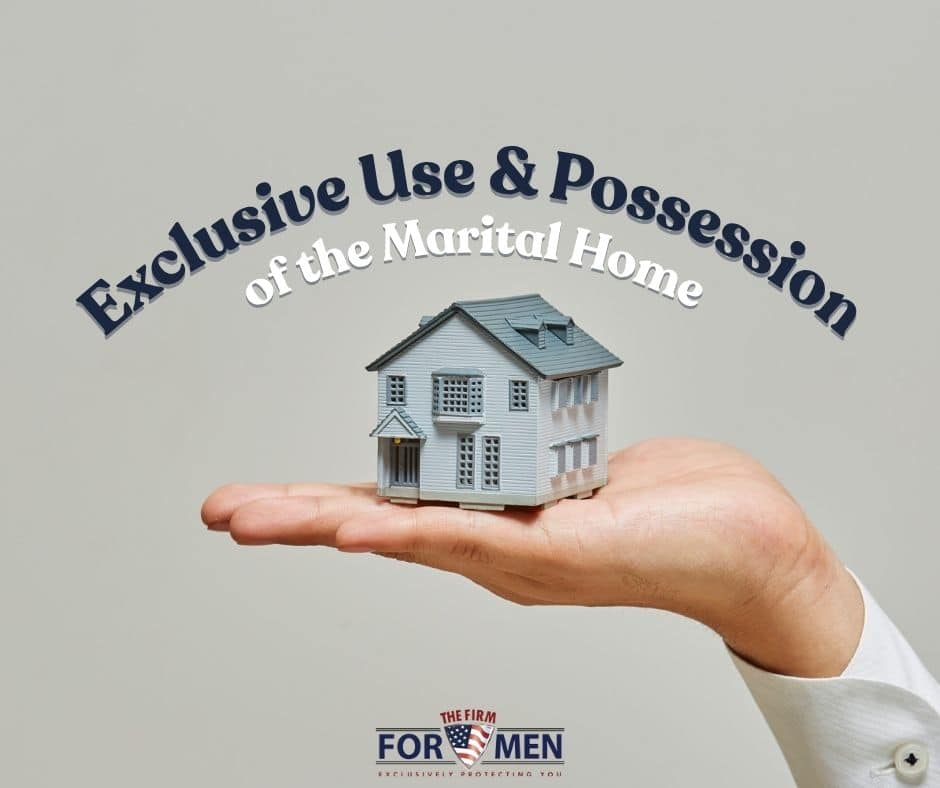The most expensive private home in Virginia sits on the largest privately owned parcel of George Washington’s former Mount Vernon estate. With a price tag of $60 million, it may seem extravagant — but it’s a reminder of one universal truth: for most families, the marital home is the most valuable and emotionally charged asset in a Virginia divorce.
Whether you and your spouse live in a luxury estate or a modest mobile home, your marital residence is your castle. And when separation begins, the question of who stays in the home often becomes one of the most contentious issues.
Jump to a Section
- Be It Ever So Humble
- It’s the Law: Exclusive Use and Possession
- Threats and Protective Orders
- When There Are No Threats
- When You Have No Children
- What Exclusive Possession Does — and Doesn’t — Mean
- What You Can and Cannot Do in the Home
- When Your Spouse Seeks Exclusive Possession
- Your Best Ally Moving Forward
Be It Ever So Humble
During separation in Virginia — whether six months or twelve — both spouses can legally continue living in the marital home. Technically, you can share the same roof while sharing nothing else: not meals, not chores, not finances, and certainly not marital intimacy.
Some homes are large enough to make this work. Most are not.
As a result, many separating couples need a legal mechanism for physical separation before divorce is finalized. That mechanism comes in the form of a court-ordered award of exclusive use and possession of the marital home.
It’s the Law: Exclusive Use and Possession
Virginia Code § 20-103 gives courts the authority to issue temporary (pendente lite) orders during divorce. Buried within its long list of clauses is a powerful provision:
“… for the exclusive use and possession of the family residence during the pendency of the suit …”
This means your family law attorney can ask the court to grant you sole possession of the marital home while the divorce is ongoing. For parents, this can be especially important — most judges prefer the parent who spends the majority of time with the children to remain in the home for stability.
But you must be prepared to show the court why staying in the home is in your children’s best interests — or necessary for safety.
Threats and Protective Orders
If you or your children feel unsafe in the home because of your spouse’s behavior, the fastest and most effective tool is a protective order under Code of Virginia § 19.2-152.10.
A judge can issue a preliminary protective order quickly if there is evidence of:
- Acts of violence
- Threats of violence
- Criminal acts that may cause injury or property damage
If granted, a protective order can immediately remove your spouse from the home and strengthen your case for exclusive use and possession during the divorce.
Your attorney should prepare evidence and ensure the petition is presented properly — this step also supports the grounds for divorce.
When There Are No Threats
Not every divorce involves threats or danger. Exclusive possession can still be granted under circumstances such as:
- Your spouse has already moved out voluntarily
- Your spouse has moved in with someone else
- You can show the arrangement is in the children’s best interests
- There are concerns that conflict could escalate into violence
- Your spouse contributes nothing to the home and acts like a squatter
A seasoned family law attorney can craft arguments tailored to your situation — but the court must see a clear, reasonable justification.
When You Have No Children
Convincing a judge to grant exclusive possession is much harder when the marriage has no children. Courts avoid creating homelessness unless the circumstances are exceptional.
One example: when the home is equipped with accommodations for a spouse’s disability. In such cases, exclusive possession may be justified.
What Exclusive Possession Does — and Doesn’t — Mean
Exclusive use and possession is temporary.
It does not change ownership. The home is still a marital asset subject to equitable distribution. You may live there alone, but you do not own it outright.
The final division of the home — sale, buyout, or other arrangement — is determined in the property settlement agreement or by the court.
What You Can and Cannot Do in the Home
Even though you have sole possession, you cannot destroy or devalue the marital property. This falls under marital waste, which can hurt you financially during property division.
You may:
- Change the locks
- Rearrange furniture
- Live in the home without interference
You may NOT:
- Damage or destroy any part of the home
- Undertake excessive or unnecessary renovations
- Sell or discard marital furnishings or appliances
Exclusive possession gives you control — not permission to cause financial harm.
When Your Spouse Seeks Exclusive Possession
If your spouse files for exclusive possession, pause and think strategically.
Ask yourself:
- Do I want to fight this?
- Do I have the resources to contest it?
- Do I have somewhere to go if ordered to leave?
- Can I afford to move out?
- Do I actually want to remain in the home?
If you believe the children would be unsafe with your spouse, tell your attorney immediately and provide supporting evidence.
If you fear your spouse might commit marital waste, document prior destructive behavior or reckless spending and share it with your attorney.
Even if you must vacate temporarily, remember: this does not remove your financial interest in the property. Your attorney may also request restrictions to prevent your spouse from damaging or devaluing the home.
And pendente lite orders can be modified — nothing is permanent.
Your Best Ally Moving Forward
Your strongest ally in seeking or contesting exclusive use and possession is your family law attorney. The same lawyer guiding you through separation, property settlement, and divorce should handle these issues for continuity and strategy.
In Virginia Beach, The Firm For Men is here to help. Contact us or call (757) 383-9184. We’re ready to fight for your rights and your home.

